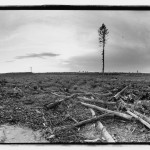ON Court of Appeal orders no logging without consent on Grassy Narrows Territory north of the English River during appeal of landmark legal victory
 Toronto – The government of Ontario has agreed not to allow logging without the consent of Asubpeeschoseewagong Netum Anishinabek (Grassy Narrows First Nation) in a vast part of Grassy Narrows Territory in the Whiskey Jack Forest north of the English River while the appeal of Keewatin v. MNR is underway.
Toronto – The government of Ontario has agreed not to allow logging without the consent of Asubpeeschoseewagong Netum Anishinabek (Grassy Narrows First Nation) in a vast part of Grassy Narrows Territory in the Whiskey Jack Forest north of the English River while the appeal of Keewatin v. MNR is underway.
Read Justice Feldman's stay order (includes a map)
Read about the August 2011 judgement in Keewatin v. MNR
In exchange the Ontario Superior Court’s landmark August 2011 judgment in favour of Grassy Narrows, which found that the Government of Ontario does not have the power to take away the rights in Treaty 3 by authorizing industrial activity including logging, will be stayed until the appeal is completed. The legal action has taken 11 years to reach this point, and will likely be appealed to the Supreme Court of Canada.
“Finally the government is beginning to recognize that it is wrong to allow logging in our territory against our will,” said Chief Simon Fobister. “But Ontario continues to make plans behind our backs for destructive clearcut logging on the lands we have always used and cared for. This must stop.”
“We have struggled for many years to save our way of life in the face of clearcut logging, which has contaminated our waters and destroyed our lands,” explained Joseph Fobister, one of the Grassy Narrows trappers who initiated the legal action. “We cannot go back to the old way of business where decisions were imposed on our people and our land with devastating consequences for our health and culture.”
The agreement is given force by an order of Justice Feldman of the Ontario Court of Appeal. It applies to an area that is nearly half of Grassy Narrows Territory, although studies to determine the exact extent of the Territory are not complete.
“This is a big departure from the usual government insistence on business as usual during lengthy appeals,” said Robert Janes, lawyer for Grassy Narrows in this litigation. “It speaks to the strength of Grassy Narrows’ stand against unwanted clearcut logging from a legal perspective and also from a moral, and political viewpoint.”
Logging in the area has been mostly suspended since AbitibiBowater surrendered their license in June 2008 under intense pressure from grassroots blockades, boycotts, and legal action. However, the new Whiskey Jack Long Term Management Direction, made public in Dec. 2011 without Grassy Narrows' support, plans for many large clearcuts on Grassy Narrows Territory north and south of the English River in the next ten years. The plan comes into force this April. Grassy Narrows holds that industrial activity which can permanently impact their inherent and Treaty rights requires their free prior and informed consent as recognized by the UN Declaration on the Rights of Indigenous Peoples.
Elder Rita Kokokopenace: “We chose and are determined to maintain our way of life by protecting and maintaining our traditional lands, every place that our people, our ancestors have lived. We continue to live in the same way of life which was given to us along with the right to live our way of life on the land that is inherently ours.”
Contact: Chief Simon Fobister: 807-407-0170, Joseph Fobister: 807-407-2745,Robert Janes: 250-888-5269.




